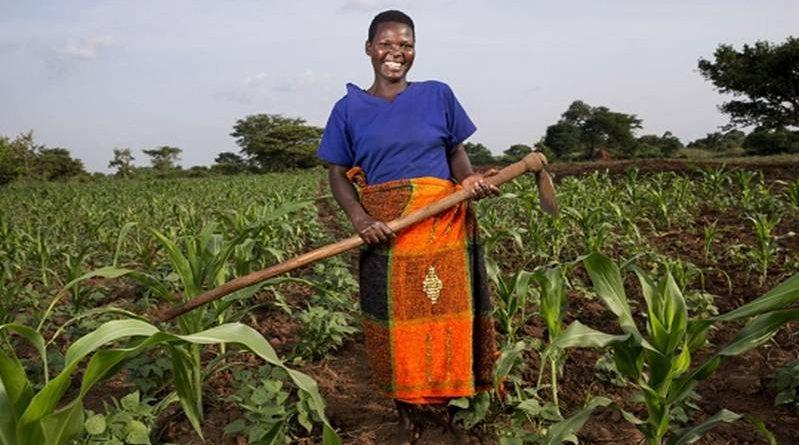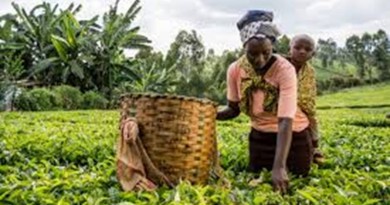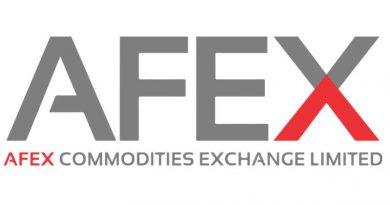AfDB unveils $1billion insurance facility for farmer in Africa
Presenting its $1 billion facility, the African Development Bank Group aims to insure over 40 million farmers throughout the continent against the harsh effects of climate change. During a side event at COP28 in Dubai, the World Food Programme (WFP), development agencies, insurance firms, and the private sector lauded the facility broadly.
According to Adesina, the Africa Climate Risk Insurance Facility for Adaptation (ACRIFA) seeks to strengthen the insurance sector in Africa by mobilizing $1 billion in grants, high-risk capital, and concessionary financing.
By reducing risks, the facility is intended to shield nations and farmers from extreme weather-related calamities and to encourage private sector investment in agriculture.
In light of the increasing frequency and severity of catastrophic weather disasters like droughts, floods, and pest infestations, we must assist farmers rather than turn our backs on them. The Bank President stated, “We need to make sure that farmers and other players in the agricultural value chain are adequately covered by insurance.
More than 97% of African farmers, according to Adesina, lack agricultural insurance. Their only safeguard is to hope that it will rain when they plant. Pray that there won’t be any rain or pest destruction during harvest, and that prices won’t plummet when they go to market.
“More than 40 million African smallholder farmers are watching us.” The President of the Bank stated, “Let’s make ACRIFA the answer to their prayers.”
“The African insurance industry will systematically be supported by ACRIFA to unlock financing for investments in climate-smart and green technologies,” stated Adesina. He continued, “It will promote integration with national and international reinsurers and strengthen local insurers.”
Unveiled during the September Africa Climate Summit in Nairobi, ACRIFA unites governments, business sector entities, development agencies, and the insurance industry. Delivering services to customers through collaborations like the World Food Programme will be critical to the facility’s successful launch.
Throughout Africa, agricultural communities are being impacted by the climate catastrophe. The World Food Programme’s Cindy McCain stated that “this programme will play a significant role in protecting smallholder [farmers], pastoralists, and small businesses from climate shocks.”
“We are thrilled about our expanding collaboration with the African Development Bank, enabling us to provide additional assistance to governments in their efforts to address the climate emergency,” the speaker continued.
Bogolo Kenewendo, the Special Advisor to the UN Climate Change High-Level Champion, and Ibrahima Diong, the Assistant Secretary General and Director General of the African Risk Capacity Group, stated during the presentation that ACRIFA will increase investment and resilience in the continent’s agri-food systems.
A panel discussion on how widespread adoption and application of high-quality insurance solutions connected to climate risk might increase food security in Africa and provide new economic opportunities for the international insurance industry ensued after the presentation. Dr. Victor Oladokun, the bank president’s senior advisor on stakeholder engagement and communication, served as moderator.
“Insurance is absolutely critical in building resilience, meaningful resilience, for Africa’s farmers,” stated Michelle Kigari, Head of Government Relations at One Acre Fund. “Farmers are not able to bounce back from some shocks if they don’t have a safety net, and insurance helps build that safety net.”
Hassan Bashir, Senior Advisor at ACRIFA and Founder of Takaful Insurance Group of Africa, asked insurance companies to think about providing insurance coverage for large-scale group clusters of farmers. “Agriculture provides food and jobs for Africa, yet we view it as a dangerous industry. Life depends on agriculture, so it’s not dangerous, according to Bashir.
“Transparency breeds trust, and transparency is only possible with data.” “Trust and better investors as well as better support for farmers can be achieved through bringing transparency throughout the entire value chain,” stated Kate Kallot, CEO of Amini AI, an artificial intelligence firm that focuses on the lack of environmental data in Africa.
Hope Murera, Managing Director and CEO of Insurer Training Centre Zep-Re Academy and Board Member of Acre Fund, brought up the issue of quality, accurate, and reliable data, which continues to be a major challenge for many investors across sectors in Africa: “As the Zep-Re Academy, we are doing our bit, but it is not enough.” We discussed data. How do we obtain information to accurately price?”
Bridget Gainer, Global Head of Public Affairs and Policy at Aon, one of the biggest risk management firms in the world, declared, “We are better together.” “Africa has a sizable insurance market. Dr. Beth Dunford, Bank Vice President for Agriculture, Human and Social Development, stated that “this Facility will bring the key players together to make it easier to achieve scale, to make connections between players, and for insurance to reach more of the continent’s most vulnerable.”




